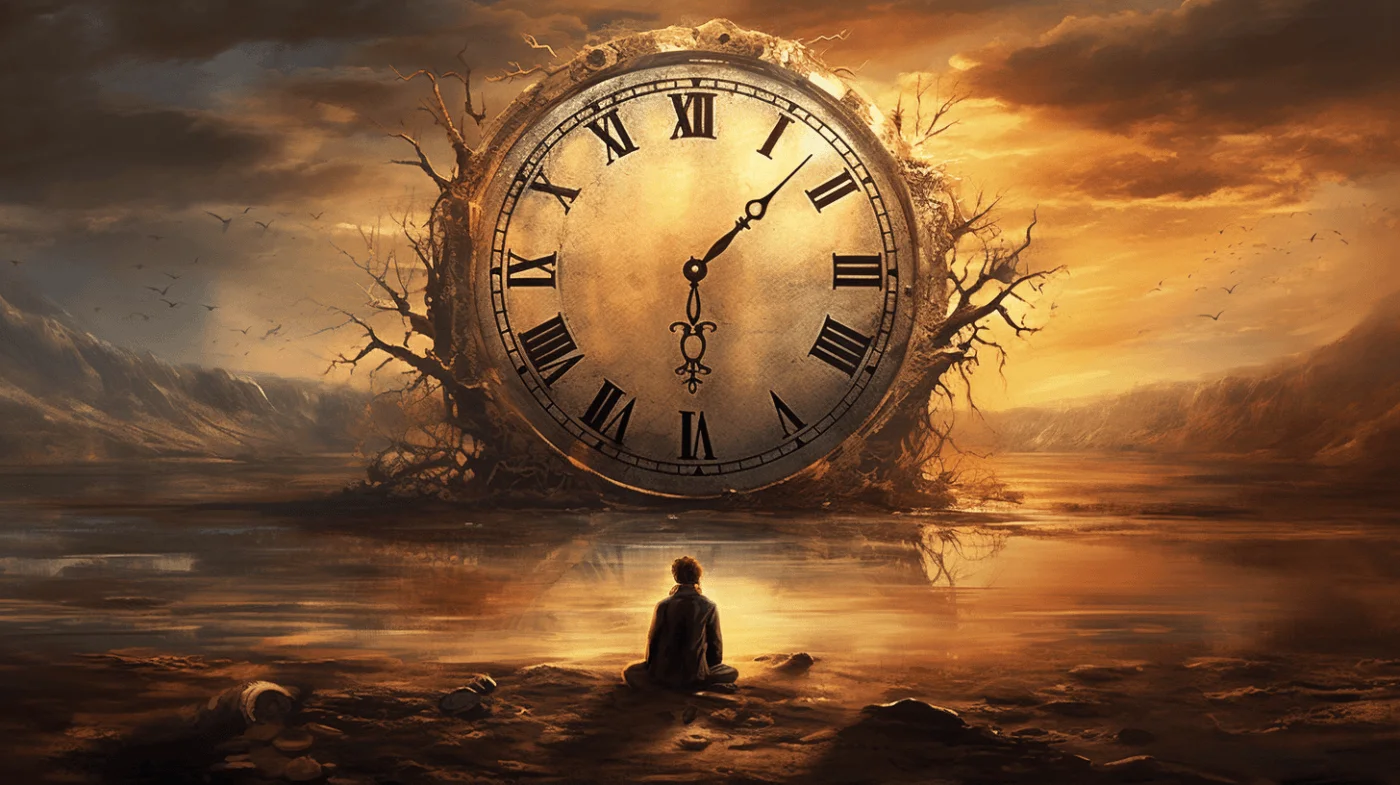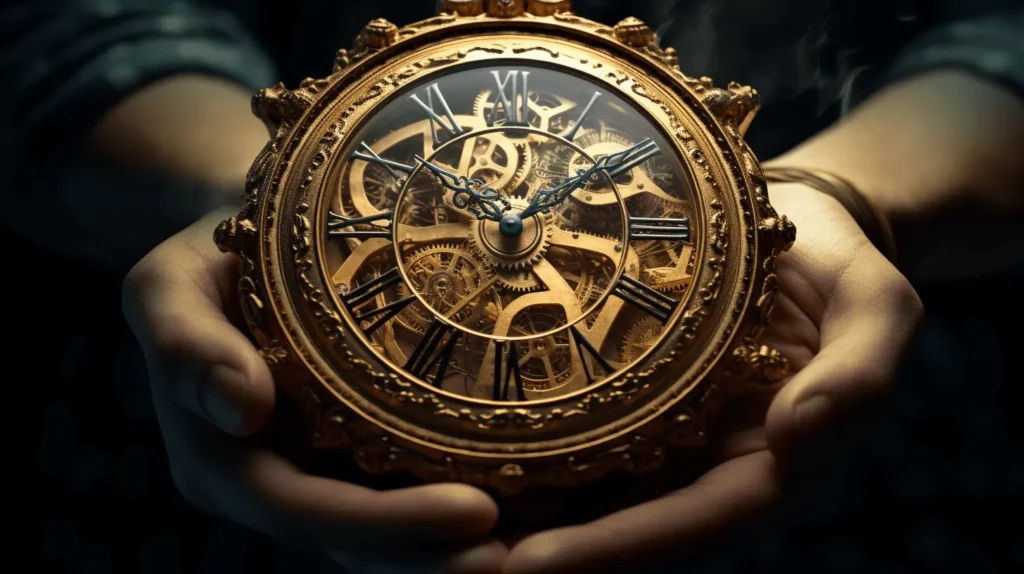Truth & Goodness
Sickles, Hammers, and Dollars: The Capitalist Miracle of “Red” Vietnam
01 March 2026

The human imagination seems doomed to two – extremely divergent – views of time. The first of these would be symbolized by Heraclitus’ famous saying “Panta Rhei,” which indicates the constant passage of time and the inability to return to what came earlier. The second concept of time was expressed by Ecclesiastes when he wrote “Nihil novi sub sole,” meaning “nothing new under the sun,” a statement which accentuates the semblance of all discoveries, and at the same time the constancy, rhythmicity and inexorable continuity of time. How should we place our lives against the background of such bipolarity in the understanding of time? Which interpretation seems closer to the modern understanding of man?
The two concepts of time mentioned above focus only on its active and dynamic approach, or rather the contrary: on its stability and immutability. However, capturing time in yet another perspective seems to be closer to the intuition of modern man. St. Augustine (354–430) put it aptly, by writing:
…it might properly be said, ‘There are three tenses or times: the present of past things, the present of present things, and the present of future things.’ These are three realities in the mind, but nowhere else as far as I can see, for the present of past things is memory, the present of present things is attention, and the present of future things is expectation.
The medieval thinker evokes three dimensions of time: the past, the present and the future, which he believes best reflect the meaning of human existence. Interestingly, he clearly emphasizes the constant presence in our lives of both the past and the future, which still exist in our present. Such a point of view provokes reflection: To what extent can modern man live what is here and now without analyzing what was once and without looking ahead in anticipating what will be? Can we isolate our present, and focus on what is present and important to us today, or are all our actions inevitably the result of past experiences or projections of what may yet come to pass?
We recommend: Is Dialogue The Most Pressing Challenge of Our Time? Our Lost Ability to Communicate
Such an intuition regarding human life was most fully expressed by the German philosopher Martin Heidegger (1889‒1976), who in his opus vitae Being and Time presented human existence as a relation between the three dimensions of temporality mentioned above. He expressed the dependence between them in a very concrete way: Man by nature focuses either on what has already been, so he escapes into the past, or he has to plan, and set himself further goals to achieve, and so he escapes into the future. Therefore, in Heidegger’s view, modernity appears as a common part of two overlapping sets: the past and the future. The separation of the present, the clear distinction of a conscious and understanding focus on my contemporariness, exceeds the capabilities of man.
If we take a closer look at man in the 21st century, we can largely agree with the philosopher from Fribourg. When Heidegger writes about the past, which not only constitutes man, but focuses their attention on itself all the time, he means: tradition, culture, education, and history, in which each of us was born, grew up and matured. Heidegger is right when he says that to understand yourself today, you need to be aware of your roots and conditioning because they have shaped you over the years. The only question is to what extent modern man does not run away from their here-and-now into the past, because I cannot change the past, so analyzing it endlessly seems much easier than focusing on my present, which depends on me and for which only I can take responsibility? When he writes:
The past belongs irretrievably to an earlier time; it belonged to the events of that time; and in spite of that, it can still be present-at-hand ‘now’… …the term ‘history’ is not so much ‘the past’ in the sense of that which is past, but rather derivation from such a past.
It draws attention to the inevitability (and sometimes: inability) of breaking out of what was earlier. This can be an easy excuse for one’s failures here and now, or an attempt to justify current mistakes or to escape decision-making.
The other extreme is flight into the future, which is also a tempting opportunity for a man who finds it difficult to take his present into his own hands. Heidegger defines the future by projecting, that is, having a plan for your life, setting new goals to achieve and having a vision of what your future would look like. Again: This approach seems to be a conscious and responsible planning of one’s life, for Heidegger it is a sign of authentic existence, but the same danger as before may lurk behind it.
The inauthentic future has the character of awaiting
– he warns.

Sometimes it is easier to plan, to set new perspectives for development, and to spread a vision of what I would like to achieve than… to act concretely, here and now. Planning is convenient and safe. Because plans can always be changed, canceled, or not implemented. It is much more difficult to act, to make concrete choices now, to decide in the present time.
Heidegger reveals a trap to modern man that is very easy to fall into. His vision of man is the imprisonment of a human being between the past and the future without the ability, skills, and courage to focus on the here and now.
Therefore, the only proper possibility of existence in the world for them is the life of man in a sense of temporal unity based on openness to the world.
We recommend: The worst kind of lie. Are we really having such a hard time?
In the disclosedness of the ‘there’ the world is disclosed along with it. The unity of the horizontal schemata of future, Present, and having been, is grounded in the ecstatical unity of temporality,
which means, in practice, striving for the ability to merge all three dimensions. So not focusing on what has already been, but has passed, nor on running forward bypassing your here and now. We need to be aware of where we come from, what we carry with us, what we strive for, and what we want, but the most important thing is where and who we are here and now. Let the words of the American writer Christopher Paolini (b. 1983) remain a guideline for the modern man:
Live in the present, remember the past, and fear not the future, for it doesn’t exist and never shall. There is only now.
You may also like:
Translation: Marcin Brański
Truth & Goodness
01 March 2026



Zmień tryb na ciemny